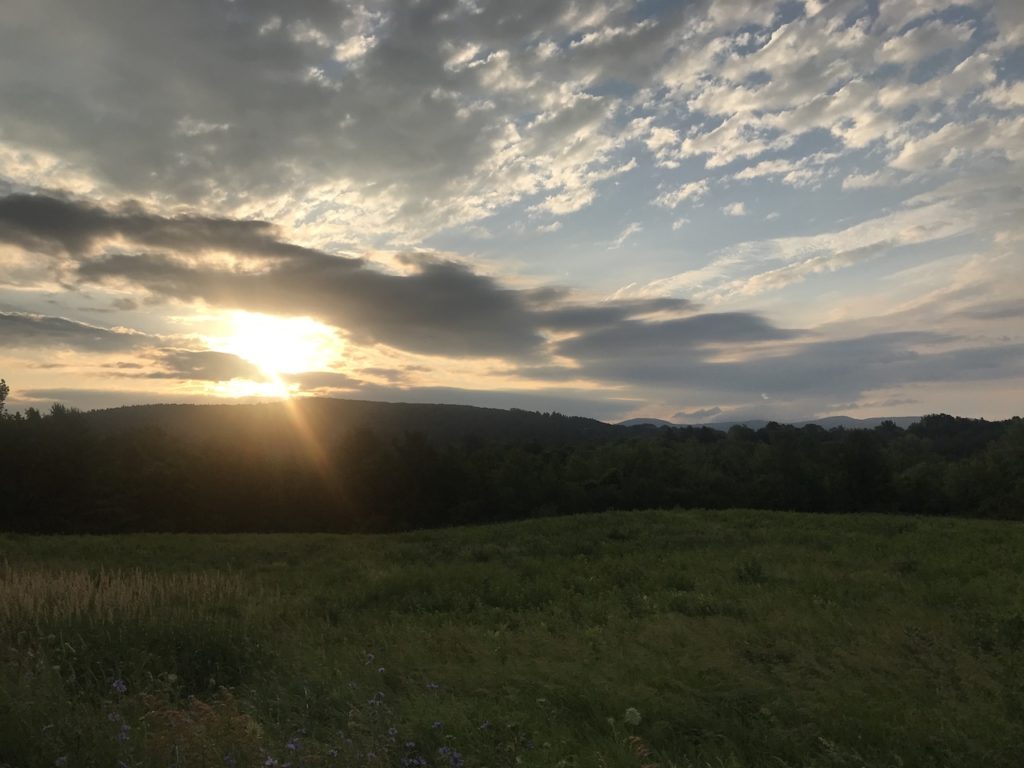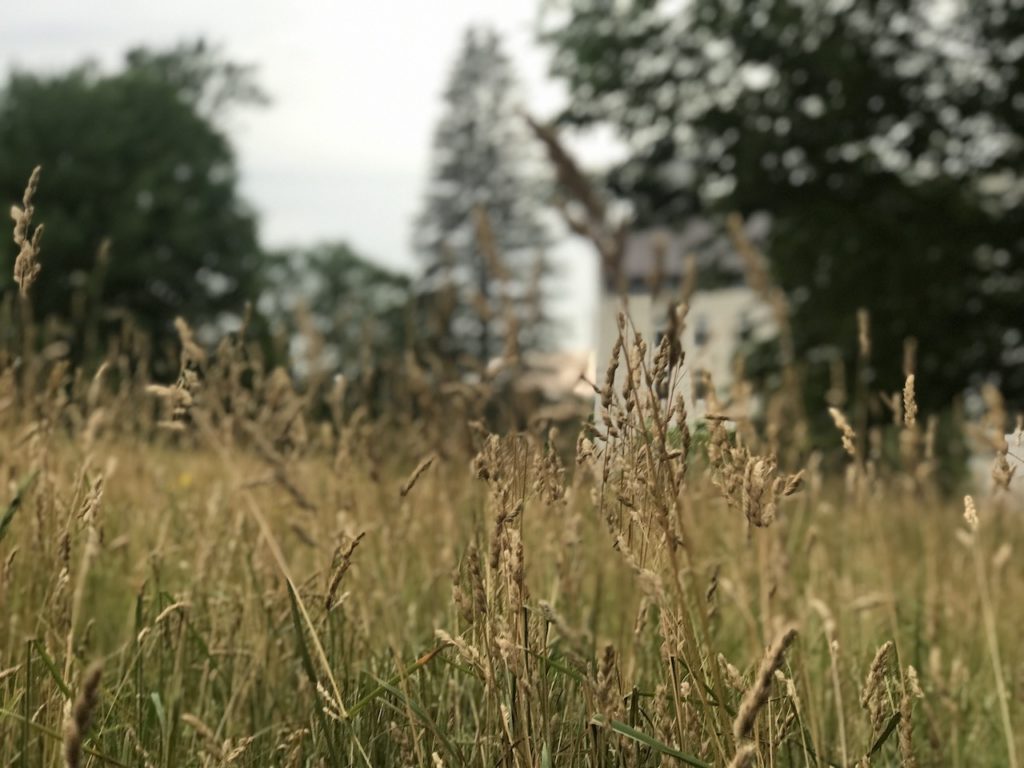It’s been quiet a while since I’ve posted on my blog! Taking a quick look, my last post was in March of this year (which sadly means I won’t hit my goal of posting at least twice a month for my genealogical resolution). However, it was not intentional and unfortunately genealogy had to take the back burner for a long time as I took care of my health and other life events throughout this pandemic. I am though in the ProGen Study Groups course and will blog about that later on, so luckily genealogy wasn’t too far away from me!
In better news, over the summer I got a chance to disconnect almost entirely from the real world. In this post I’ll talk a little bit of this summer where I was able to study French, but more importantly where I also hired a French genealogist abroad to continue my research of my ancestors from Martinique in notarial records in France!
Un été en français...




This summer I was fortunate in that I was able to go away for seven weeks to Vermont to study French in an immersive environment. I had taken French for two years in high school and for one semester in college, yet I knew I was becoming very rusty and lagged behind grammatically compared to where my Spanish is (my heritage language and one that I teach). With the French skills I had, I was already able to use French genealogically in order to conduct research in the ANOM (Archives Nationales d’Outre-Mer) online records, however, I was no way near reaching fluidity or being able to use the language to a level I wanted to be at. So I decided to apply to the Middlebury summer language schools (Middlebury being both my alma mater for my Bachelor’s and Master’s degrees and also where I spent three summers in immersive programs studying Russian and Spanish). I happily placed into an intermediate French level after refreshing with Duolingo and spent the summer studying grammar, culture, phonetics, and literature completely in French. From sun up to sun down (and even in my dreams), I was amongst hundreds of students who lived, breathed, and everything “else-d” under the sun… en français.
Seeing as how I was going to be immersed in the language, I decided to try and find a French genealogist who could potentially help me discover more about my French Caribbean family via notarial records housed in France. So, I went on the hunt!
Finding a genealogist
In my 17 years of genealogy, I had yet to hire a genealogist. It wasn’t for reasons of pride, if not as a teacher, I am fortunate to have the summers off which allow me to travel to Puerto Rico or Spain to conduct my own research. Though Spain wasn’t originally in my wheelhouse of research comfort, being able to speak Spanish natively and having lived abroad in Madrid, Spain allowed me to easily head to the island of Mallorca and the region of Andalucía to conduct research on my own. However, researching in France was a whole different ballgame. Not only was I not aware of how to use any French archives (except ANOM and BNPM online) coupled with my limited knowledge of French and the crazy summer hours likely worsened by the pandemic, I knew I needed someone on the ground with the wherewithal to be able to effectively conduct the research I needed.
My family research was another hurdle in and of itself – I was aware that I had roots in Martinique and Guadeloupe which arrived in Puerto Rico in the 1860s, however both lines were enslaved. This means that they likely did not have inherited money, ownership of land, or other titles that would have them appear in notarial records in France – especially given the short 20-ish year window between freedom and arriving in Puerto Rico. This meant that the search would have to revolve around the French families which owned my ancestors. Seeing as how I knew who owned Eglantine and Julienne Malvina Lautin (my 5th and 4th great-grandmothers), I thought it would hopefully be easy and more probable to find information on my ancestors amongst the notarial records of the Garnier-Laroche and Lapierre families who had ownership of these women until 1848 when the French slaves were freed.
I turned to the APG (Association of Professional Genealogists) in order to see who could potentially head to the archives to search for my enslaved ancestors in my place.

I chose to search the APG because I knew there you could find a mix of professional and certified genealogists. Usually, the genealogists on the APG list their specialties, areas of interest, knowledge of languages, CV/Blog/Website links, and other qualifying information. These are genealogists who have paid to be placed on this site and join this community of other professional genealogists, so I knew that this would be a great place to start. If you are searching for a genealogist or someone who can specifically search for a certain type of record or repository – I definitely recommend using the APG!
I searched for genealogists that were currently living in France who would be able to travel to the local ANOM in Aix-en-Provence to search notarial records which have not been digitized. Since I had decided to search before my summer program, I reached out to two genealogists in English. Both got back to me – one stated they were not sure if they would be able to go in the time being while the second genealogist said it would likely be possible for them. I decided to continue the conversation with the second genealogist, Mickaël Mange (APG profile linked), and try my luck. Mickaël did have a personal website (linked here!) listed on the APG website and listed enough information about himself that I felt comfortable hiring him. I passed along the information I had on my ancestors, the families that owned them, and any other detail I thought might be of importance. Given covid restrictions, Mickaël was only able to get a slot for the end of July which for me was totally fine – I was going to be immersed in French and I knew that time would fly by. My only hope was that the research was fruitful given the very specific situation I was in.
I was forwarded a contract detailing the price I would uphold on my end and the research that would be conducted on his end. I signed the contract, transferred a percentage of the quote to the genealogist, and crossed my fingers. Note: For anyone hiring a genealogist for research, a contract is a great way to show that the genealogist is serious and provides you backing in case things do not go the way they’d promised (this is similar for them as well as a form of protection from clients). Make sure to carefully read the contract, seek legal/professional genealogical advice if necessary, and ask any questions before signing the contract. This is especially important if the contract is in a foreign language!
Les résultats
It was a Saturday afternoon and I was doing laundry when I got an email from Mickaël with the report of what he had found. I was initially hesitant to open it up – what if nothing was discovered? What if no records appeared naming Eglantine or Julienne Malvina in notarial records for these French families and I was at a dead-end? I opened the email of course and told myself no matter what, at least I would have searched and erased any doubts of any potential records left undiscovered in France.
I read through the email where he detailed his discoveries; most of the records listed land transfers, donations/dowry, and eventually the selling of slaves from various families amongst them the Garnier-Laroche and Lapierre who owned my family. By viewing these records I was able to learn not only about these specific French families in Martinique and their financial status and transactions, but ultimately I was able to learn a tiny bit more about Julienne Malvina and her African mother Eglantine.
These records were able to give me a timeline of sorts for both the Garnier-Laroche and Lapierre family and their ownership overtime of various slaves.
Chronological timeline
Louis Le Terrier and his wife Jeanne Catherine Depraz sell their land (sugar plantation) to François Garnier-Laroche and Edouard Lapierre. This land will later be known as “Le Terrier”.
Jean Jacques Catherine Lapierre sells to his son Edouard Lapierre and his son-in-law François Garnier-Laroche eight slaves:
1º Alexis dit Dugué (30 y/o)
2º Lubin (45 y/o)
3º Vigilant (35 y/o)
4º Gustave (18 y/o)
5º Venus (35 y/o)
6º Clarice (30 y/o)
7º Charlotte (25 y/o)
8º Sévérine (20 y/o)
François Garnier-Laroche and Edouard Lapierre divvy up responsibilities as “good brothers” such as who will take care of the land (planting/harvesting), the sick slaves (responsibility of Edouard Lapierre ) while other responsibilities such as “external affairs”, buying equipment, cattle/mules, or buying more slaves will be the responsibility of François Garnier-Laroche.
Mannette Forget, widow of Joseph Rools de Montauvert, and Jean Jacques Catherine Lapierre, authorizing the sale with his wife Alexandrine Forget, of the sugar plantation “La Trainelle” to François Garnier-Laroche and Edouard Lapierre. The sisters Alexandrine and Mannette Forget inherited said land via the succession of Mr. Pinel de la Palun.
A receipt is issued for “François Garnier-Laroche” here listed as François Marie Joseph Garnier-Laroche and his spouse Rose Hélène Lapierre, to the parents’ of Rose – Jean Jacques Catherine Lapierre and Alexandrine Forget, a dowry received for the marriage of François and Rose on the 1st May 1820 for the sum of “16,666,66 francs” or “30,000 livres coloniales” [colonial pounds].
The couple also received “43,333,33 francs” for other acquisitions in the form of a donation.
Similarly this year, Mannette Forget donates to her niece Rose Hélène Lapierre the sum of “4,444,44 francs”.
A deed of sale is registered between Alexandrine Forget, widow of Jean Jacques Catherine Lapierre and Hélène Lapierre, with the authority of her husband François Garnier-Laroche. Alexandrine is accompanied by her son Edouard Lapierre, the sale is of a plantation “Le Terrier” containing 31 hectares, nine slaves, various buildings, and cattle for the price of 20,000 francs. The following slaves are listed:
1° Coman (30 y/o)
2° St Prix, (29 y/o)
3° Dugué (43 y/o)
4° Alfred 20 (y/o)
5° Sévérine (42 y/o)
6° Aurore (56 y/o)
7° et 8° Eglantine (25 y/o) and her child (2 y/o)
9° Adélaïde (61 y/o)
Rose Hélène Lapierre receives a payment due to her from by the late Ferdinand Julien Perriollat’s estate during the sale of the sugar plantation “Le Terrier” for 20,492,40 francs.

Conclusions
Seeing a value placed on my 5th great-grandmother hit me like a brick. I thought I’d never see a document like this yet here it was, staring right back at me, a fixed priced not just on my 5th great-grandmother but also her 2 year old child, who based on the original date of this sale [1846] would mean that this child born in 1844 would be my 4th great-grandmother Julienne Malvina Lautin. Eglantine at the time of this sale would also have been pregnant with her daughter Pauline who would be born later in October 1846. When Pauline was born, her mother Eglantine, sister Julienne, and herself would have already been sold to François Garnier-Laroche and Rose Hélène Lapierre, their last owners before slavery was abolished.
Though I did not learn a lot of biographical information about Eglantine and Julienne, I was able to learn more about the families that held them. It seems that two main properties, “Le Terrier” and “La Trainelle” were what these families were working with in terms of sugar plantations. The Garnier-Laroche, Lapierre, and Forget family were able to share their wealth amongst a few generations, enough to have them enjoy a life of privilege starting around 1826 when land was purchased for the Garnier-Laroche and Lapierre owners.
Given thecontract drawn up by “beaux frères” (brothers-in-law) François Garnier-Laroche and Edouard Lapierre, it seems that François would have been the one responsible for purchasing Eglantine. The question then becomes, from whom did François purchase Eglantine? She wasn’t inherited like a few other slaves from his father-in-law (Jean Jacques Catherine Lapierre) and Eglantine came directly from Africa, so was she purchased straight off the boat from the continent on a selling block in Martinique?
Left with some questions I recently contracted Mickaël Mange again to see if more could be answered via other notarial records held in Aix-en-Provence. This search is a bit more difficult but Mickaël states we can’t rule out the possibility of not finding where in Africa she was from as some records in the ANOM do mention the origin of some slaves.
We can only cross our fingers! Also, I am hoping to find some information about my branch in Guadeloupe, however, since this branch was freed prior to 1848 there are no slave owners listed on any of their records post-freedom. Since Terre-de-Bas is a tiny island belonging to Guadeloupe, I’m hoping there are less notarial records to comb through. We can only hope luck will strike again!
To be continued…!
